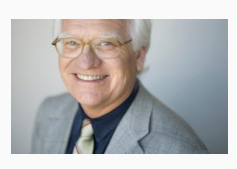Saudi Arabia Gets Free Pass on Destroying Yemen
YemenExtra
SH.A.
By: Thomas Walkom
The fate of Saudi columnist Jamal Khashoggi has captivated the world. Was he murdered in the Saudi consulate in Istanbul and cut up into small bits as the Turks allege? Was he killed by “rogue elements” as U.S. President Donald Trump has suggested? Was his death the accidental result of an overzealous interrogation by Saudi authorities, as some news reports have said?
Or is the whole thing a hoax?
Certainly, everyone seems to have an opinion. In the U.S., both Republican and Democratic legislators have called for sanctions against Saudi Arabia should the murder allegations prove credible. Even Canada has been moved to speak.
Prime Minister Justin Trudeau said he has “a real concern.” Foreign Affairs Minister Chrystia Freeland said she remains “very troubled.”
All of this is fine. Although veteran insider Khashoggi was more a player than a standard journalist, few in the West would have wished him ill for his gentle criticisms of the current Saudi regime.
Yet oddly enough, one of those key criticisms — Saudi Arabia’s prosecution of the bitter war in Yemen — has received almost no attention.
In one of the last columns he wrote for the Washington Post, Khashoggi called on Saudi Crown Prince Mohammed bin Salam, the real power in Riyadh, to end the cruel and pointless war in Yemen.
“The crown prince must bring an end to the violence and restore the dignity of the birthplace of Islam,” Khashoggi wrote.
In this, he was correct. The war in Yemen is a disaster both for its people and the world at large.
Its beginnings lay in Yemen’s complicated regional and tribal rivalries. But Saudi Arabia’s 2015 decision to intervene — and the West’s decision to tacitly back that intervention — transformed it into a humanitarian calamity.
The Saudis said they were entering the war to defeat a rebellion linked to Iran. That link was never clear.
It was clear, however, that the Saudi-led bombing campaign increased Yemen’s death toll exponentially. The Saudis and their allies began by bombing military targets but moved quickly to attack Yemen’s civilian infrastructure.
As a result, Yemen is suffering one of the worst cholera epidemics in human history. The United Nations estimates that 8.4 million Yemenis, including 1.8 million children, are at the point of starvation. Roughly 50 per cent of the country’s health facilities have been destroyed.
The UN blames all sides in the conflict. But it estimates that the vast majority of the 16,700 civilian casualties to date are the result of Saudi-led bombings. The Saudis are doing to Yemen what Syrian dictator Bashar al Assad did to his own country.
Yet while Western nations are happy to denounce Assad, most are reluctant to take the Saudis to task.
Indeed, the Americans, under both Barack Obama and Trump, have quietly aided the Saudi-led bombing campaign by providing mid-air refuelling, logistical support and intelligence. British soldiers help provide command and control for the bombing effort.
More to the point, the West supplies the Saudis with arms.
It’s a lucrative trade for the U.S., Britain and even Canada, which currently has a $15 billion contract for armoured vehicles carriers in play.
Last month, the Wall St. Journal reported that U.S. Secretary of State Mike Pompeo certified that both Saudi Arabia and the United Arab Emirates were doing their best to avoid civilian casualties in Yemen. That’s almost certainly untrue. But if Pompeo had not granted certification, a $2 billion sale of U.S. missiles to the two nations might have been put at risk.
In September, the Spanish government briefly contemplated cancelling plans to provide Saudi Arabia with laser-guided bombs. But Madrid quickly backed down after it was told that this might threaten a lucrative contract to provide the Saudis with new warships.
For the Saudis, the lesson from all of this is that the regime can act with impunity.
Other countries might fuss from time to time. But in the end, they will line up to sell this rich, desert kingdom whatever arms it wants.
As Khashoggi contemplated his future in Istanbul’s Saudi consulate two weeks ago I expect he understood this as well as anyone.

